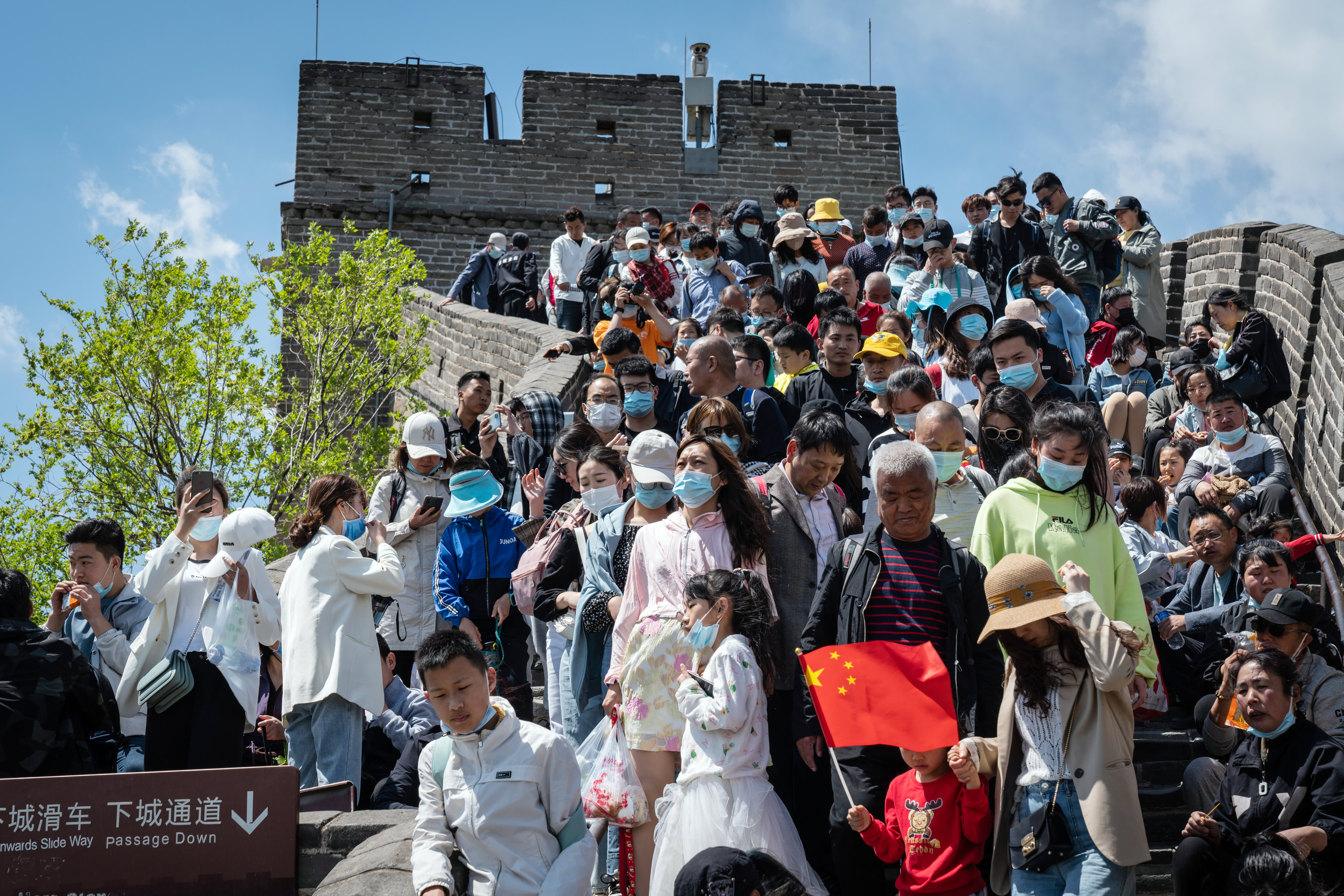BEIJING — Millions of Chinese rushed to travel during the five-day Labor Day holiday, in yet another sign of gradual recovery in domestic consumption.
May 1 to 5 marked the “hottest” public holiday for leisure travel since the coronavirus pandemic, Chinese travel booking site Trip.com said in a statement Wednesday translated by CNBC. The reemergence of Covid-19 on the outskirts of Beijing earlier this year prompted local authorities to restrict travel during the Spring Festival in February.
Labor Day holiday bookings for hotels, car rentals and other travel more than tripled from the same period a year ago, and rose more than 30% from 2019, Trip.com said, without disclosing dollar amounts. Shanghai Disney Resort was among the top 10 destinations, including for those 21 years old and younger, according to Trip.com.
Chinese consumers also spent 1.67 billion yuan ($260 million) at the movies during the holiday, primarily on domestic films, according to ticketing site Maoyan.
Overall, a record 230 million trips were taken within the country during that period, an increase of nearly 18% from 2019 levels, according to figures from China’s Ministry of Culture and Tourism.
However, total spending of 113.23 billion yuan ($17.48 billion) fell short of 2019’s expenditure by about 4 billion yuan, the data showed.
At that level, spending per capita during the holiday was about 75% of what it was in 2019, said Zhiwei Zhang, chief economist at Pinpoint Asset Management. “Overall the economic trend continues to improve, but part of the service sector (is) not yet back to the pre-Covid level.”
Spending by individual consumers has lagged the recovery in China’s economy since Covid-19 temporarily forced more than half the country to shut down in early 2020. Retail sales fell last year despite overall GDP growth, before surging in the first quarter of 2021.
International travelers turn to Hainan
The rush to travel domestically comes as quarantine requirements and travel bans keep most Chinese from venturing overseas.
Chinese international travel plunged 87% last year and will not likely return to pre-pandemic levels until the second quarter of 2023, consultancy Oliver Wyman said in a report last week.
That means billions of dollars not spent overseas can potentially be spent at home or saved for future purchases, the report said, pointing out that Chinese consumers spent $245 billion abroad in 2019.
The analysis found that nearly 60% of those travelers are turning to the southern tropical island province of Hainan, which has expanded its duty-free shopping centers in the last few years.
For high-end luxury brands, Hainan will become much more attractive to them if in the future they can open their own stores instead of through a duty-free operator.Imke WoutersPartner at Oliver Wyman
Duty-free sales in Hainan topped 700 million yuan from May 1 to 4, according to state media, citing the latest available figures from the local customs agency. For comparison, an eight-day holiday in October recorded 1.04 billion yuan in Hainan’s duty-free sales.
“May is seen as the first (moment when) you can really see the true potential of Hainan, without any travel restrictions,” Oliver Wyman partner Imke Wouters said in a phone interview Thursday.
However, she pointed out that right now brands need to work with duty-free centers in Hainan. As a result, profitability could be up to 50% less than it would be through their own stores on the mainland.
“For high-end luxury brands, Hainan will become much more attractive to them if in the future they can open their own stores instead of through a duty-free operator,” Wouters said, noting government policy is moving toward individual store ownership.
